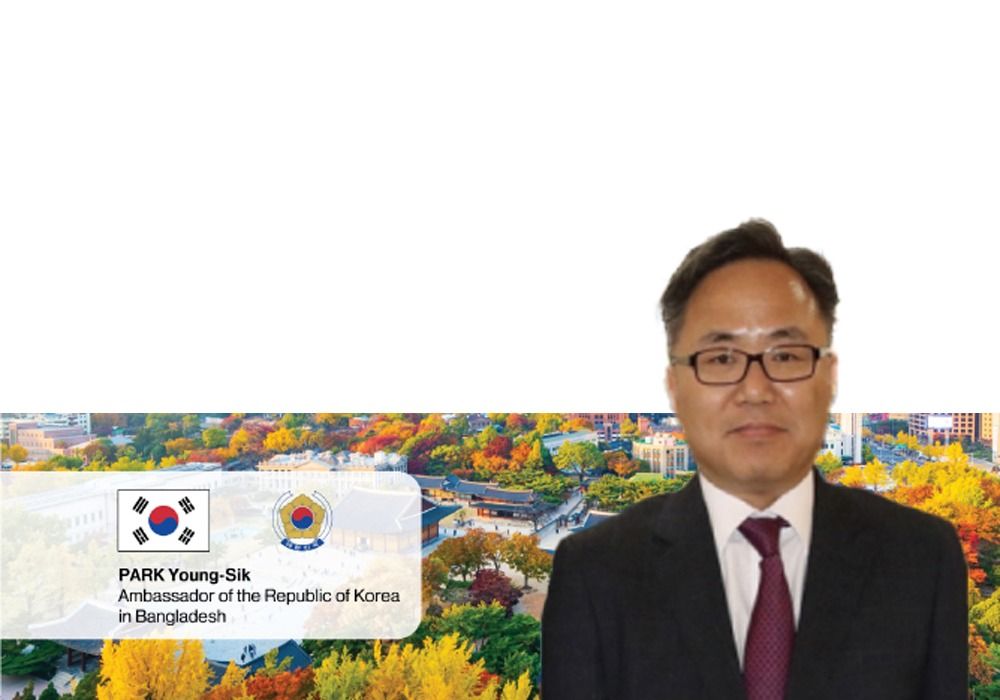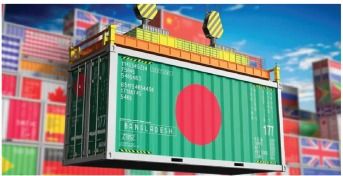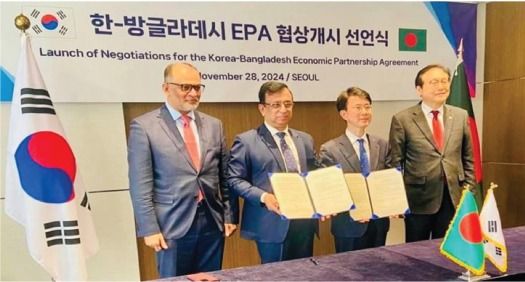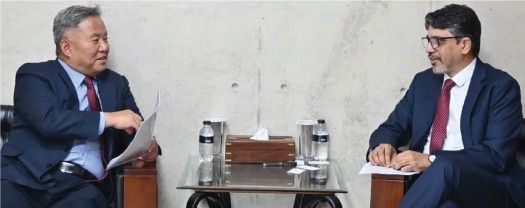- info@ficci.org.bd
- |
- +880248814801, +880248814802
- Contact Us
- |
- Become a Member
- |
- |
- |
- |
- |

Most Koreans who ask me about Bangladesh are very surprised by the fact that Bangladesh is the 35th largest economy in the world and will emerge as the 9th largest in terms of purchasing power. The main reasons for their surprised responses come from their existing perception that Bangladesh is a poor and undeveloped country with a highly dense population. On the contrary, Bangladesh is enjoying the demographic dividend with a young population, expanding its market on a huge scale, and has a strategic location connecting South Asia and South- east Asia. The important task is how to materialize the potential of Bangladesh.
Looking to the future, Bangladesh is marching towards graduation from LDC status in 2026. This journey presents immense challenges as well as opportunities for Bangladesh. Bangladesh has already shown its great potential, as evidenced by the tripling of its per capita income over the last decade. However, the post-LDC graduation phase will require a lot of hard work by both the government and the private sector in order to overcome the challenges that Bangladesh will face. Exposure to global competition is one of the biggest challenges, and thorough preparation to enhance Bangladesh's competitiveness in the global market should be made. Failure to do so could bring down the existing manufacturing sector. Also, Bangladesh must recognize that its economic structure of protecting the domestic industry with high tariffs should be reformed in a way that opens the market.
 Graduation from LDC status means that Bangladesh should focus not only on the quantity but also on the quality of its economic growth. The Bangladesh business community is well aware that it needs to attract foreign investment because the quality of its economic growth must be driven by innovation, knowledge, and technology-areas where foreign companies can make substantial contributions. The FDI of Bangladesh is the lowest in terms of the GDP ratio (0.75%), while India is at 1.7%, and Vietnam is at 4.7%. Will it increase significantly? Probably the upcoming Investment Summit (April 7-10) will answer this question.
Graduation from LDC status means that Bangladesh should focus not only on the quantity but also on the quality of its economic growth. The Bangladesh business community is well aware that it needs to attract foreign investment because the quality of its economic growth must be driven by innovation, knowledge, and technology-areas where foreign companies can make substantial contributions. The FDI of Bangladesh is the lowest in terms of the GDP ratio (0.75%), while India is at 1.7%, and Vietnam is at 4.7%. Will it increase significantly? Probably the upcoming Investment Summit (April 7-10) will answer this question.
When we look at the FDI regime around the world, every country offers similar incentives to potential investors. If they encounter the stark reality of having to renew their visa every three months, they will ask themselves wheth- er they still want to stay in that country. The complex and often inconsistent customs processes in Bangladesh add unnecessary cost increases and delays in trade. Issues such as arbitrary procedural delays and lack of transparency in customs clearance can undermine investor confidence and impede the smooth flow of goods. Tax and tariff policies and repatriation of profits to home countries should be improved in a more rational way. After all, FDI requires comfortable living conditions in host countries.
Turning to the bilateral relations between Bangladesh and Korea, the most important area where the two countries should work together is to finalize the bilateral Economic Partnership Agreement (EPA). The two countries officially announced the commencement of a bilateral EPA negotiation on November 28, 2024. This agreement is expected to boost bilateral trade and investment by reducing trade barriers, expanding market access, and removing obstacles that hinder foreign investment. It aims to create new opportunities for business- es in both countries and strengthen economic ties. The RCEP (Regional Comprehensive Economic Partner- ship), comprising 10 ASEAN countries and 5 of its dialogue partners (Australia, China, Japan, South Korea, and New Zealand), is another important FTA, which Bangladesh decided to enter last year. The RCEP offers another opportunity for Bangladesh to increase trade and investment with 15 economically important countries.

The businesspeople of both countries can foster bilateral cooperation and collaboration in sectors such as footwear, ICT, light industries, pharmaceuticals, shipbuilding, the blue economy and deep-sea fishing, agricul- ture and agricultural machinery, climate change, and carbon trading schemes. Korean companies have cutting-edge technologies, while Bangladeshi companies have the potential to initiate new ventures. I hope that innovative investment combining technology and capital will flourish in Bangladesh.

Korean companies have been long-standing partners of Bangladesh, contributing significantly to the growth and success of the RMG industry. In recent years, we have witnessed remarkable developments in diversifying areas of cooperation beyond the RMG, particularly in manufacturing and infrastructure. Korea does not pursue strategic interests beyond our economic cooperation. Over the last fifty years, collaboration in the RMG sector has been a driving force behind our bilateral relations. I believe that the Bilateral EPA, just announced to enter negotiations, could serve as the next engine to elevate our partnership to new heights over the next fifty years.





